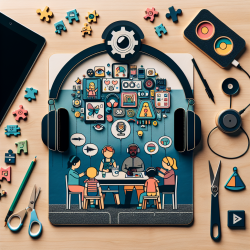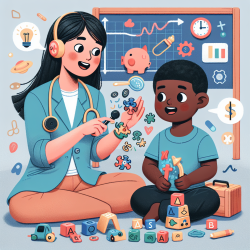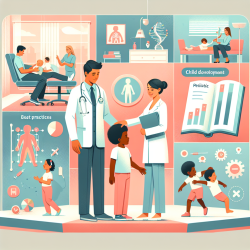Introduction
The COVID-19 pandemic has presented unprecedented challenges for families worldwide, particularly those with children who have developmental disabilities (DD). The disruption in daily routines and limited access to support services have significantly impacted the quality of life (QoL) for these families. A recent study conducted in Brazil, titled "Perceived Social Support and Quality of Life of Children with and without Developmental Disabilities and Their Caregivers during the COVID-19 Pandemic," provides valuable insights into how perceived social support can influence QoL during such challenging times.
Understanding the Study
This cross-sectional study compared the perceived social support and QoL of caregivers and children with DD and those with typical development (TD) during the pandemic. The research involved 52 caregivers of children with DD and 34 caregivers of children with TD, assessing various domains of QoL using validated scales.
Key Findings
- Both groups reported similar levels of perceived social support during the pandemic.
- Children with DD had lower QoL scores in areas such as psychosocial health, physical health, social activities, and school activities compared to children with TD.
- Caregivers of children with DD reported higher QoL in terms of physical capacity, emotional aspects, and social aspects than those of children with TD.
- Greater perceived social support was associated with higher QoL for both children and caregivers, with more significant associations observed in families of children with DD.
Implications for Practitioners
For practitioners working with families of children with DD, these findings underscore the importance of fostering social support networks. Here are some practical steps practitioners can take:
- Encourage Community Building: Facilitate virtual support groups where caregivers can share experiences and resources.
- Promote Access to Resources: Help families connect with local services and support systems that can provide both formal and informal assistance.
- Advocate for Policy Changes: Work towards policies that ensure continuous support for families, even during crises like a pandemic.
Encouraging Further Research
While this study provides valuable insights, it also highlights areas for further research. Future studies could explore the long-term impacts of the pandemic on QoL and the role of different types of social support in mitigating these effects. Additionally, examining the direct experiences of children with DD could provide a more comprehensive understanding of their needs.
Conclusion
The study reveals that perceived social support plays a crucial role in enhancing the QoL for families of children with DD, especially during challenging times like the COVID-19 pandemic. By implementing strategies to strengthen social support networks, practitioners can significantly improve the well-being of these families.
To read the original research paper, please follow this link: Perceived Social Support and Quality of Life of Children with and without Developmental Disabilities and Their Caregivers during the COVID-19 Pandemic in Brazil: A Cross-Sectional Study.










